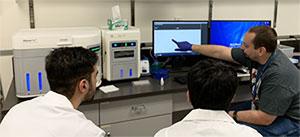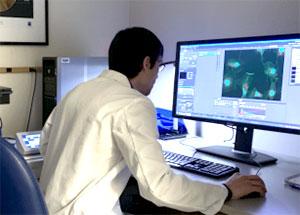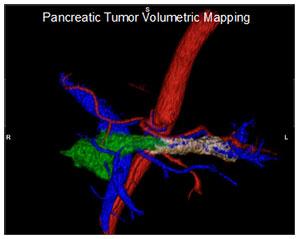Technology Training
As part of the first year’s curriculum, our MSTM students will go through advanced technical training conducted by the center of bioinformatics, the research shared resources, as well as clinical services at City of Hope. Our students will have hand-on experience in handling state-of-the-art equipment and technology. These training sessions will equip our students the relevant skills that they can apply to their Master’s thesis research and future biomedical/clinical careers. Examples of the share resource training are:
- Students will be introduced to next-generation sequencing technologies and file formats
- Students will learn how to perform normalization, differential expression analysis, clustering, peak findings, motif analysis, gene-ontology and pathway analysis
- Students will obtain hands-on lab training on clustering, pathway analysis, motif analysis, miRNA target prediction, and Integrative Genome Viewer
- Students will be given an overview of the fundamentals of flow cytometry
- Students will learn how to use an Attune Flow Cytometer
- Students will be provided with cell samples to perform analysis using an Attune Flow Cytometer
- Students will be given an overview of the fundamentals of Mass Spectrometry
- Students will learn how to use different mass spectrometry instruments and have an understanding of various features of each instrument
- Students will be provided with protein sample to analyze and are expected to identify the sequence of the given protein
- Students will have one-on-one training sessions with the instructor to learn how to use a light microscope and a confocal microscope
- Students will be given sample slides to practice how to take and process images
- Students will be given an overview of the fundamentals of the 3D advanced imaging technology developed at the 3D Oncologic Imaging Center at City of Hope
- Students will learn how the 3D advanced imaging technology allows accurate visualization of the tumor and surrounding tissues to aid surgical procedure
- Students will learn how the technology provides volumetric and qualitative assessment of the tumor.
- Students will be given an overview of tissue-based cancer biomarker analysis.
- Students will be introduced to immunohistochemistry.
- Students will learn about manual and automated quantitation of tumor biomarkers.
- Students will receive expert guidance on career options in medicine and biomedical research.


